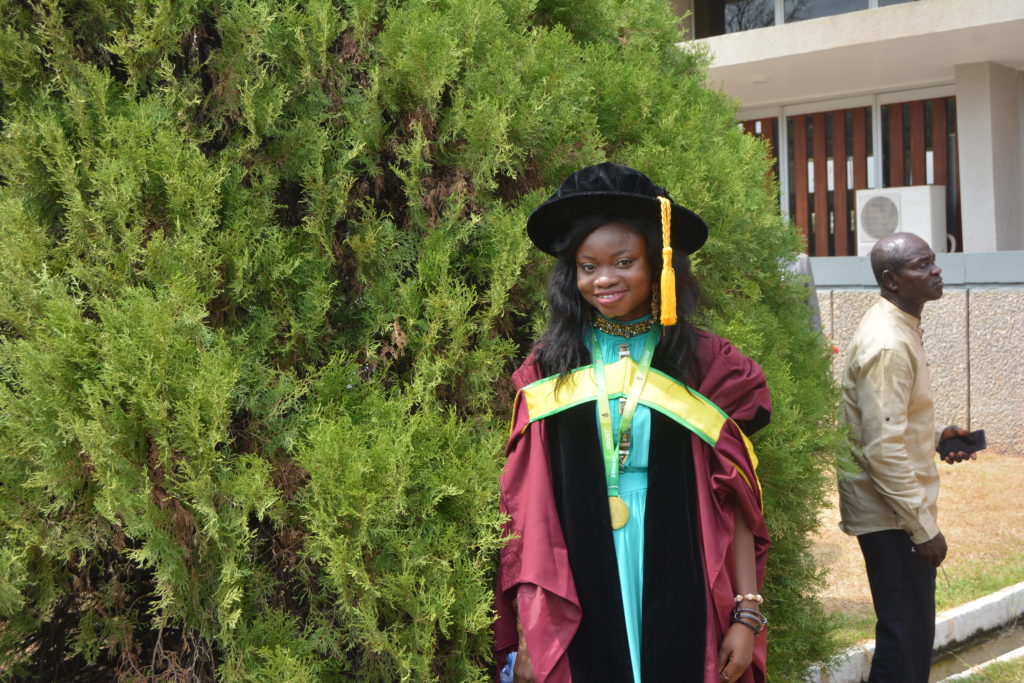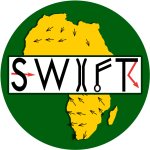By Lauren Phillips, University of Leeds
As a young girl growing up in Ghana, Dr. Winifred Atiah was fascinated by the weather forecasts she watched on TV with her family. While some childhood passions fade with age, Atiah’s was a launch point for her career in meteorology and climate science.
Despite being classed as an early career scientist, Atiah already has a number of notable accomplishments to mark her first decade in the field.

In addition to being awarded top student in the Meteorology and Climate Science programme at her alma-mater, Kwame Nkrumah University of Science and Technology (KNUST), Atiah was also the first student to obtain a First Class Honours degree since the programme’s inception in 2008.
After earning her Masters in Mathematical Sciences at the African Institute of Mathematical Sciences (AIMS-Senegal) and a PhD with KNUST under the DACCIWA project, Atiah also completed three years of research study at the Botswana International University of Science and Technology, sponsored by the Organization of Women in Science for the Developing World.
SWIFT fellow improves weather forecasting for extreme events in Ghana
More recently, Atiah joined the GCRF-African Science for Weather Information and Forecasting Techniques (SWIFT) programme on a two-year fellowship in April 2020. Selected from a competitive pool of candidates spanning sub-Saharan Africa, Atiah is working with colleagues at KNUST and the Ghana Meteorological Agency to analyse the atmospheric conditions of Mesoscale Convective Systems in southern West Africa.
“My research will significantly improve on weather forecasts, particularly for flood forecasting and early warning systems. This will help reduce the death tolls from extreme weather events, particularly in Ghana and West Africa,” she explains.
“To any young woman passionate about meteorology and climate science: if you have a dream, go chase it.” – Dr Winifred Atiah
“The results of this research will also benefit public safety and inform decision-making in key economic industries, including aviation, construction, utility and road maintenance, and recreation.”
Since joining the team, Atiah progressed quickly, publishing her first paper as a SWIFT fellow less than five months into her role. Available as of August 2020, the paper evaluated the performance of satellites and merged rainfall products over Ghana, offering valuable comments on the reliability and consistency of satellite products over the region.
Women face systemic barriers in meteorology and climate science
Atiah’s early accomplishments are even more impressive when put into context with systemic barriers like sexism that can prevent women from succeeding in STEM.
Though it’s no secret that women are underrepresented in science – less than 30% of the world’s researchers are women – in Ghana, the odds are stacked even further, with women claiming only 18.7% of all research roles. When they do get their foot in the door, women are paid, published and promoted less than their male counterparts.
“A major barrier in my career has been the issue of being looked down upon because of my age, stature and gender. I can recall instances where people have called me names just because they didn’t believe a woman could be smart or be the best,” she says. “There have also been times where I had to go an extra mile to prove myself and my research competencies, which in my opinion isn’t the case for my male counterparts.”
Though solving complex issues like gender equity isn’t easy, Atiah urges organisations to engage women and girls at early ages.
“It’s important to motivate young girls to explore their passion for science. Local and international organisations should continue to provide research grants to women to motivate them and develop their interest in the field,” she says.
“To any young woman passionate about meteorology and climate science: if you have a dream, go chase it. There will inevitably be challenges and setbacks, but every step forward brings you closer to achieving your goals.”
